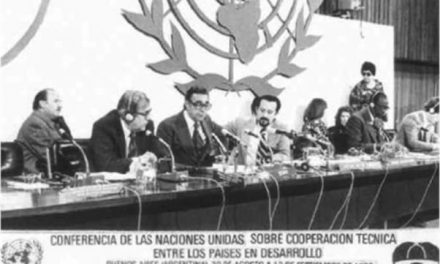
Namibia’s historic energy potential highlighted at African Energy Week

Three major oil discoveries made in less than one-year, attractive fiscal policies and market-focused regulations, and a strong partner in the national oil company (NOC) have made Namibia one of the world’s most enticing hydrocarbon plays in 2023.
Eager to capitalize on this growing interest, the government has put in place an ambitious growth agenda centered around private sector participation and therefore has opened up lucrative opportunities for investors and project developers active across the entire energy value chain.
During this year’s edition of African Energy Week (AEW) – the continent’s premier event for the energy sector, taking place in Cape Town from October 16-20 – a dedicated Namibian country spotlight session will provide stakeholders with the information and tools they need to invest and join in the promising Namibian energy market.
Led by a delegation of high-level industry professionals including Namibia’s Minister of Mines and Energy Hon. Tom Alweendo and representatives from the NOC Namcor, the country spotlight will explore all of the reasons why Namibia is the next big hydrocarbon play.
What makes Namibia’s energy market so unique is that it is relatively undeveloped and yet offers significant potential across every facet of the natural and mineral resource sectors. On the oil and gas front, exploration efforts were rewarded by three breakthroughs in 2022 and 2023, with energy majors Shell, TotalEnergies, and Qatar Energy announcing discoveries at the Venus-1X, Graff-1X, and Jonker-1X wells.
These finds have sparked an investor frenzy, with new E&P companies entering the market and active explorers accelerating exploration campaigns. Canadian explorer ReconAfrica is rapidly progressing with its onshore upstream campaign in PEL 73 – announcing an updated prospective resource estimate of 22.4 trillion cubic feet last month -; TotalEnergies is currently engaged in a multi-well appraisal and exploration drilling program in Block 2913B; while ExxonMobil and Chevron are expanding their Namibian acreage.
Downstream, the government is working towards putting the right infrastructure in place to support long-term economic growth. With the Southern African region experiencing an energy crisis, the Namibian government is prioritizing power generation, with future oil and gas resources playing a role. Currently, the country’s gas-to-power strategy is spearheaded by the Kudu project, a major initiative aimed at leveraging offshore gas reserves for power generation.
The 450 MW plant will monetize offshore gas resources while contributing towards energy security and the reduction in electricity imports. With the three discoveries, Namibia’s gas-to-power play has become even more promising.
As the country’s energy demands grow, there is a need for a robust downstream infrastructure to support the distribution and supply of petroleum products. Investors can participate in the expansion and modernization of service stations, storage facilities, and distribution networks, ensuring a reliable and efficient energy supply to meet Namibia’s growing needs. What’s more, the government has prioritized local content, eager to ensure the population reaps the maximum rewards of the growing hydrocarbon market. Namibia recognizes the importance of public-private partnerships for local capacity building in the energy sector. These partnerships focus on knowledge transfer, skills development, and technology transfer, creating opportunities for investors to collaborate with local institutions and contribute to the growth of the Namibian workforce.
While Namibia’s oil and gas sector has enticed a strong slate of players, the country’s renewable energy sector has emerged as one of the biggest investment opportunities worldwide. Abundant solar and wind resources coupled with a conducive environment for foreign investment have seen regional and global interest turn to the country’s green hydrogen prospects. With the European Union looking at increasing investments in African green hydrogen under the Green Deal Industrial Plan while importing up to 10 million tons of green hydrogen and its derivatives by 2030, Namibia stands to play a much larger role in global supply chains. Hon. Alweendo and the government are working on establishing a green hydrogen hub, and while billion-dollar projects have already kicked off – Hyphen Hydrogen Energy and the government inked a deal for the next phase of a $10 billion green hydrogen project in May 2023 – significant opportunities remain for foreign investors and green hydrogen companies.
“Namibia is taking all the right steps to establish a strong, competitive, and long-lasting energy sector in-country. From implanting market-focused regulation to collaborating with global energy companies and regional governments to opening up the sector to private sector participation, the country is on the precipice of transformative growth. The AEW 2023 Namibian country spotlight will outline these opportunities, and promote prospects while connecting new players to the growing market,” stated NJ Ayuk, Executive Chairman of the African Energy Chamber (AEC).
The Invest in Namibian Energies country spotlight at AEW 2023 will feature a roundtable discussion, a series of presentations and project profiles, private meeting opportunities, and networking summits, enabling stakeholders to meet, connect and sign deals.
AEW is the AEC’s annual energy event uniting global investors and project developers with African energy opportunities. The event serves as the biggest gathering of energy stakeholders on the continent, and this year, takes place under the theme, ‘The African Energy Renaissance: Prioritizing Energy Poverty, People, the Planet, Industrialization, and Free Market.’ Visit www.AECWeek.com for more information.












































